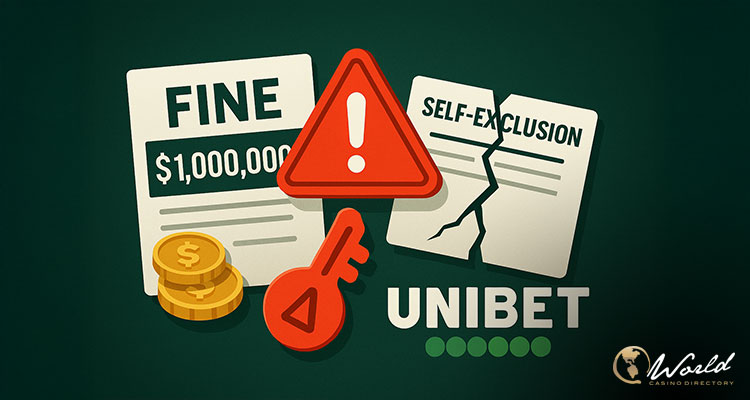Betchoice Corporation Pty Ltd, operating as Unibet, has been fined over $1 million by Australia’s gambling regulator for serious failures in upholding the rules surrounding the country’s self-exclusion program. The penalty stems from violations related to the National Self-Exclusion Register, BetStop, where Unibet neglected to promptly deactivate hundreds of accounts belonging to individuals who had chosen to restrict their gambling activity.
The Australian Communications and Media Authority (ACMA) concluded a comprehensive investigation that revealed Unibet had committed more than 100,000 breaches of the Interactive Gambling Act 2001. These violations occurred when the operator failed to close the accounts of 954 users who had enrolled in the self-exclusion register, as required by law.
Accounts Left Open for Months After Self-Exclusion
According to the ACMA, 45 of these accounts were not deactivated for periods exceeding 190 days. Some users had even self-excluded on the day BetStop launched, but still retained access to their accounts. Although none of the self-excluded individuals were able to place bets during their exclusion period, the accounts remained technically active—a clear breach of regulatory requirements.
Adding to the violations, Unibet allowed 45 individuals to resume gambling activity via previously deactivated accounts after their self-exclusion had ended. These users placed thousands of bets using their original profiles, despite regulations mandating that a new account must be created for any post-exclusion gambling. In one instance, a single customer placed over 1,200 bets through an account that should have been closed permanently.
ACMA Slams Unibet for “Sustained” Breaches
Carolyn Lidgerwood, a member of the ACMA and its lead on gambling compliance, condemned the operator’s conduct. “Our investigation found very serious breaches by Unibet over a sustained period of time,” she stated. “Taking in some cases 190 days to close accounts is clearly unacceptable and does not reflect the decisions made by Unibet customers to seek support to help them not gamble.”
She emphasized that the self-exclusion framework is intended to create a deliberate pause in gambling activity, one that requires a fresh decision—and a new account—if individuals choose to return. “NSER rules are also there to ensure that people are making a clear and deliberate choice to recommence gambling. That is not the case if they can simply access old accounts,” Lidgerwood added.
First Financial Penalty for NSER Violations
This $1,014,120 fine is the first issued by the ACMA specifically for breaches related to the National Self-Exclusion Register. BetStop, which launched in August 2023, replaced state-level systems with a unified national registry, and has since passed 40,000 registrations as of April. The Authority did issue a fine of AU$500K to PointsBet last week, but that was for illegal marketing and for self-exclusion violations.
In addition to the financial penalty, Unibet has agreed to a court-enforceable undertaking lasting two years. This binding agreement requires the company to undergo an independent audit of its internal processes and implement all necessary improvements recommended by the reviewers.
Company Agrees to Refunds and Compliance Overhaul
Unibet has voluntarily committed to refunding affected customers who were able to access accounts that should have been permanently disabled. The ACMA noted that while no bets were placed during active self-exclusion periods and no promotional materials were sent, the failure to close accounts still presented a serious compliance gap.
The regulator underscored the broader industry implications of this case, warning that other operators must uphold the NSER rules or face substantial penalties. “This outcome puts the industry on notice that they must comply with the rules or face potential financial penalties and other actions available to the ACMA under the IGA,” said Lidgerwood.


